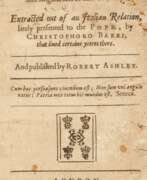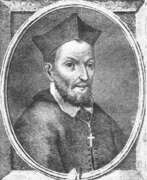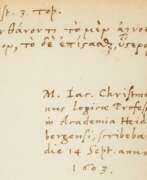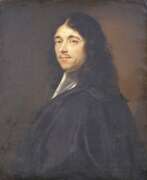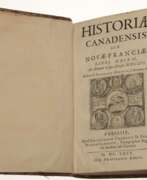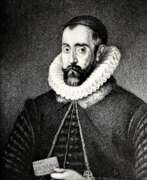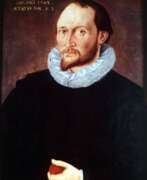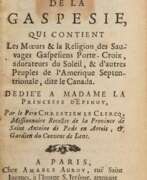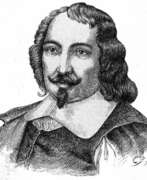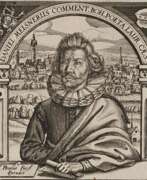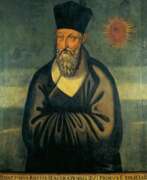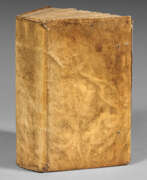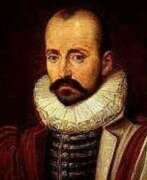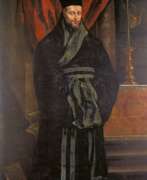Interpreters 17th century
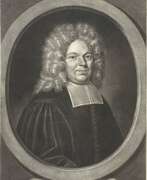

Jacques Basnage de Beauval was a French theologian and historian, diplomat and writer.
His father was a prominent lawyer and his grandfather and great-grandfather were pastors, Jacques studied theology and languages at the Academy of Saumur, then at Geneva and Sedan. In 1676, Jacques Basnage was appointed pastor at Rouen during the revocation of the Edict of Nantes, was forced to flee France for Holland, where he worked as a theologian, polemicist, historian, and diplomat in the service of the Grand Pensioner Hensius.
In 1717, on behalf of Holland, Basnage was sent to sign the treaty of the Triple Alliance (France, Holland, England). In the Annals of the United Provinces (1719-1726), compiled from the peace negotiations held at Münster, he displays breadth of vision, wisdom, and impartiality.
About 1719 Jacques Basnage was appointed historiographer of the Dutch states. He wrote several books on the Bible, the history of the Church, and the history of the Jewish people. Among the best known of these are his History of the Religion of the Protestant Denominations (1690), History of the Church of Jesus Christ to the Present Time (1699), written from Protestant positions, and History of the Jews (1706), as well as Jewish Antiquities, or Critical Notes on the Republic of the Jews (1713).
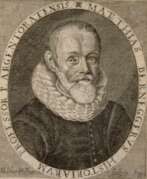

Matthias Bernegger (latin: Bernegerus or Matthew) was an Austrian and French scientist, astronomer, mathematician, linguist and translator.
He was educated in Strasbourg, where he developed a special interest in astronomy and mathematics. Bernegger corresponded with the famous scientists Johannes Kepler and Wilhelm Schickard. From 1607, Bernegger taught at the Strasbourg Gymnasium, and in 1616 he was appointed professor at the Academy.
Bernegger is known for his translations of Justinian and Tacitus, and in 1612 translated into Latin Galileo's 1606 work on the proportional compass, adding considerably to it. These additional detailed annotations by Bernegger made Galileo's compass much easier to use, making it the first mechanical calculating device that could be applied to a wide variety of complex problems. In 1619 Bernegger prepared a three-volume manual of mathematics, and in 1635 he translated Galileo's Dialogue on the Two Mass Systems of the World.
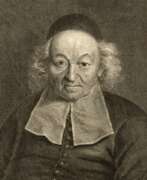

Ismaël Boulliau (Boulliaud), also known as Ismael Bullialdus, was a French astronomer and mathematician who followed the teachings of Copernicus.
Boulliau worked as a librarian for many years and had the opportunity to study the scientific works of Copernicus, Galileo, and Kepler, and as a result became a strong supporter of the heliocentric system of the world. Boulliau was also intimately acquainted with Huygens, Gassendi, Pascal and other prominent scientists of the time, and he translated many works from Greek into Latin.
Boulliau's main astronomical work, published in 1645, was Astronomia philolaica (Astronomy of Philolaus, named after the ancient Greek Pythagorean philosopher Philolaus, who promoted the idea of the motion of the Earth). In it, he supported Kepler's first law that the planets move on ellipses, and provided new evidence for this. Isaac Newton, in Book III of The Mathematical Beginnings of Natural Philosophy, relies on measurements of the magnitudes of planetary orbits determined from observations by Kepler and Boulliau.
Boulliau was also interested in history, theology, classical studies, and philology. He was active in the Republic of Letters, an intellectual community whose members exchanged ideas.
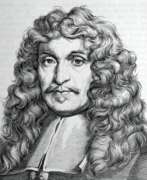

Joachim von Sandrart was a German Baroque art-historian and painter, active in Amsterdam during the Dutch Golden Age. He is most significant for his collection of biographies of Dutch and German artists the Teutsche Academie, published between 1675 and 1680.
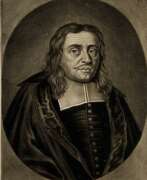

Georg Hieronymus Welsch (or Welschius) was a German physician, translator and writer.
He studied medicine in Tübingen, Strasbourg and Padua. Having lost the ability to speak as a result of illness, he decided to settle in Augsburg and educate himself. Welsch studied Greek, Latin, Hebrew and Arabic. Then in Italy he visited numerous libraries, including the Vatican library, and collected books, including the Turkish calendar.
Georg Welsch wrote several books on medicine and fossil curiosities, and researched texts on astronomy and medicine from the Ottoman Empire. He is best known for his translation of the calendar of Avicenna and Sheikh Abul-Wafa. Welsch was also a member of the Academia Naturae Curiosorum.
